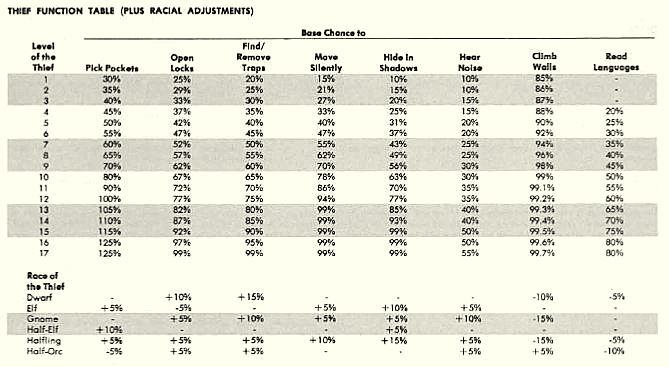ExploderWizard
Hero
These are the assumptions that come parceled with the game. Has nothing whatsoever to do with "straight up" combat. I'm talking about after combat has been entered. In any edition of D&D, it's pretty hard to gain XP without entering combat. 2e only gave you xp for killing stuff, although there were some very minor xp bonuses by class. 1e gave you most of your xp for treasure, which you got by killing stuff. 3e does have some vague rules for gaining xp for killing stuff, but, again, looking at published modules, it's pretty clear that the presumption is that you're going to kill stuff. 4e's no different from any other edition here.
I mean, come on, playing D&D and not killing stuff? That's the outlier, not the norm.
You are speaking about not killing stuff which is different from engaging in combat.
When treasure is the prime source of XP then you do what you need to get it, including killing things. Giving those that you kill for their loot a chance to kill you in return is the preferred plan for those spoken of in the past tense.
By the numbers, you are correct, a party that engages in head to head combat with great frequency will suffer a very high casualty rate. As an adventuring group you have a couple options:
1) You could just charge forward and fight often anyhow because its fun.
2) You could think of smarter solutions that expose your party to less risk and fight only as a means of last result.
The odds of having a higher survival rate are with option 2. Meatgrinder style can be a lot of fun too, but eventually you will have a desire to reach 2nd level. Thats where thinking before rolling initiative comes in handy.



